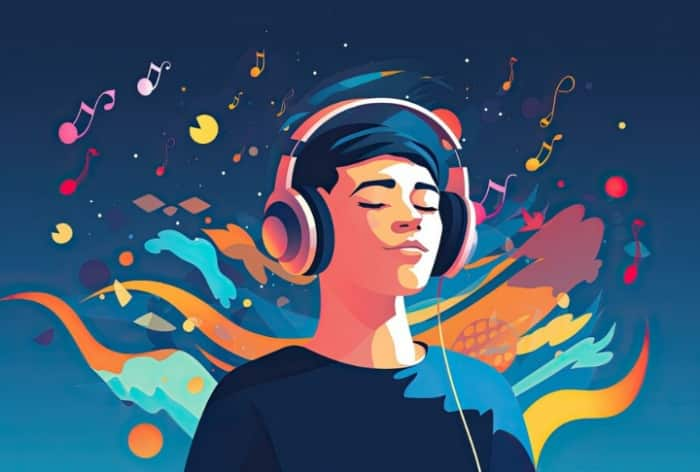Music is therapy. Tunes and melodies can actually have a positive effect on individual’s mental health.

All of us have that one song that we may listen on loop, that one song that helps us through blues, that one song that makes us want groove anywhere, anytime. Music does that to people. It connects people be it any language, any geographical areas. Music is everywhere in nature and around us and evokes very specific emotions and feelings in us. On a stressful day, listening to nature sounds like falling rain or waves crashing on the shore can act like an instant pick-me-up. A lot of people who struggle to communicate through words and language find music an easy medium to express their emotions and feelings. Music is a powerful tool to impact and elevate our mental health and wellbeing.
Healing music is an important pillar of wellbeing for us at Roundglass Living. There’s plenty of evidence to establish the mental health benefits of music. Music-based interventions have been found to reduce the symptoms of depression and bring down the levels of anxiety and stress.
How Music Boost Mental Health?
India.com got in touch with Prakriti Poddar, Global Head Mental Health and Wellbeing at Roundglass Living Music. Ms Podda elaborated that,” Music has the power to alter our state of mind, and the key to understanding this lies in sound frequencies. Quantum physics has proven that everything has vibrations, whether it is an inanimate object or the whole universe. And sound is nothing but vibrations at a certain frequency. The practice of sound healing harnesses this power of sound and vibrations and pairs it with intention – the most important aspect of healing – to raise the body’s vibrational frequency leading to healing, restoration and rejuvenation of mind and body.”
Certain frequencies encourage the brain to produce certain brain waves, through a process called brainwave entrainment, which creates different states of mind and being. For instance, some frequencies can stimulate the parasympathetic nervous system (responsible for the rest and digest state of the body) helping the body’s organs, and tissues to rest, heal and regenerate. Other frequencies can make us more alert and focused, improving our performance at work.
“As a sound healer, I vouch for the beneficial effects of Tibetan Singing Bowl meditation in reducing tension, anger, fatigue, and depressed mood in individuals. Tibetan singing bowls produce sound in the frequency range of 200-400 Hertz, which when placed on emotional or physical blockages leads to deep relaxation and healing,” she explains further.
Music therapy has also been found useful in reducing symptoms and improving overall functioning in individuals struggling with PTSD. It is also very effective in improving sleep. It reduces the activity of the sympathetic nervous system, aiding the relaxation of muscles and the mind. Music also inspires empathy in listeners. It stimulates the autonomic nervous system which controls the heartbeat and your feelings and emotions. In other words, music helps you feel more.
Music is not just for celebrations, itis also good for the mental health. Clinically proven, music therapy is extremely beneficial for a healthy mental well being.

